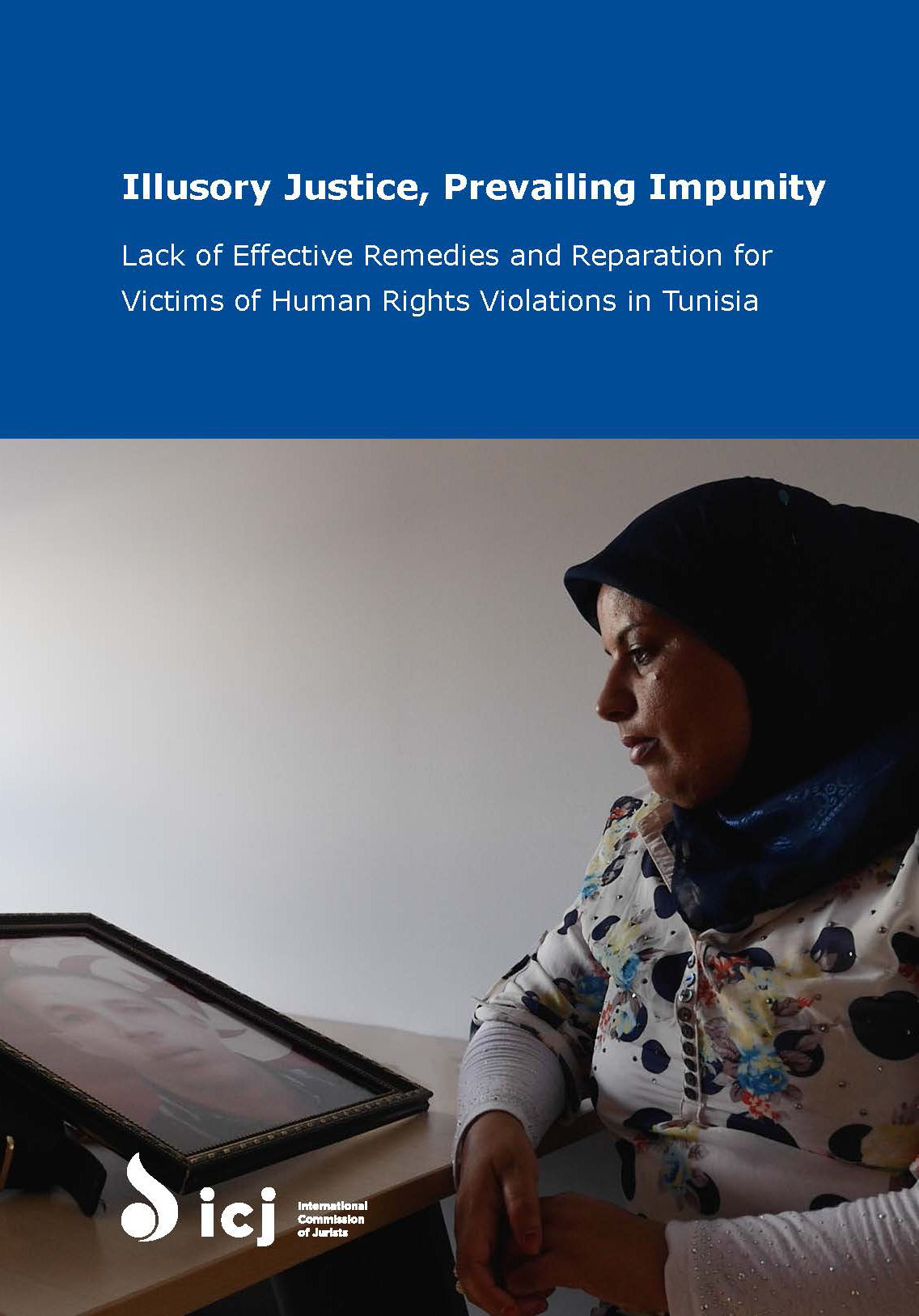In a new report released today, the ICJ called on the Tunisian authorities to adopt comprehensive legal and policy reforms as well as practical measures to fully guarantee effective remedy and reparation for victims of human rights violations.
Under Ben Ali’s regime, thousands of human rights violations, including torture and other ill-treatments, unlawful killings, enforced disappearances, and arbitrary arrests and detentions, were committed by law enforcement and other security officers, the ICJ reminds.
Numerous similar violations were also committed during the December 2010 to January 2011 uprising and some continue today.
The ICJ report Illusory Justice, Prevailing Impunity highlights how, five years after the toppling of former President Ben Ali, legal and practical obstacles continue to undermine victims’ right to a remedy and reparation.
“Despite the adoption of some reforms and transitional justice measures, such as the establishment of the Truth and Dignity Commission, to date the legal system has failed to deliver the truth and justice that victims have been tirelessly seeking,” said Theo Boutruche, Legal Adviser at ICJ’s Middle East and North Africa Programme.
While several cases have been brought before Tunisian courts, in particular military courts, these proceedings in themselves do not fulfil Tunisia’s obligations to fully investigate and prosecute crimes under international and national law, establish the truth about violations, and ensure remedy and reparation for victims, the ICJ says.
The report details numerous flaws, in law and practice, including: lack of independence of the judiciary; inadequate statutory definitions of crimes; inadequate statutory recognition of the responsibility of superior officers for certain violations committed by their subordinates; the broad discretion of the public prosecutor to dismiss cases without providing specific reasons; the inadequacy of criminal investigations, including the lack of effective measures for the protection of victims and witnesses; and the resort to military justice, rather than ordinary civilian courts, to address human rights violations.
“Hope and expectations for justice grew within the transition period, but victims are frustrated and disappointed by persistent impunity and the inadequate outcomes in the proceedings brought against law enforcement officials since 14 January 2011,” added Boutruche.
The report identifies specific reforms of the justice system, in line with international law and standards that are needed to address current obstacles and fully realize the victims’ right to a remedy and reparation.
These include ensuring that: gross human rights violations are promptly, thoroughly and effectively investigated by bodies capable of triggering criminal prosecutions where required; victims and witnesses are protected; and that victims’ rights are given full effect, including the possibility to judicially review any decision by a prosecutor to dismiss a case prior to opening an investigation.
“Comprehensive reforms of the justice system are needed not only for victims of past violations to obtain justice and reparation but also for ‘transitional justice’ measures to deliver meaningful justice. The successful transfer of cases by the Truth and Dignity Commission to the Specialized Chambers highly depends on those reforms,” said Boutruche.
Contact:
Theo Boutruche, Legal Adviser of the ICJ Middle East and North Africa Programme, tel: +96 170 888 961, e-mail: theo.boutruche@icj.org
Tunisia-Remedy & reparations launch-News-Press releases-2016-ARA (full press release in Arabic, PDF)
Tunisia-Remedies and reparations-Publications-Thematic report-2016-ENG (full report in English, PDF)
Tunisia-Remedies and reparations-Publications-Thematic report-2016-ARA (full report in Arabic, PDF)
Watch the 12-minute documentary here:

